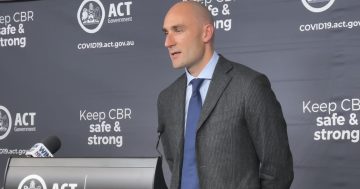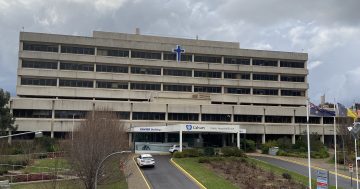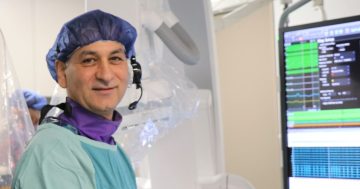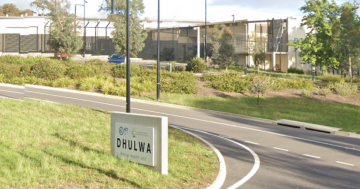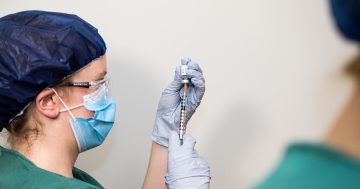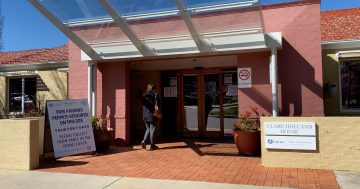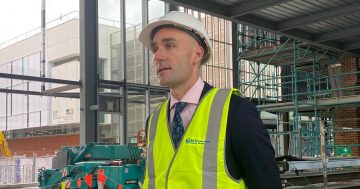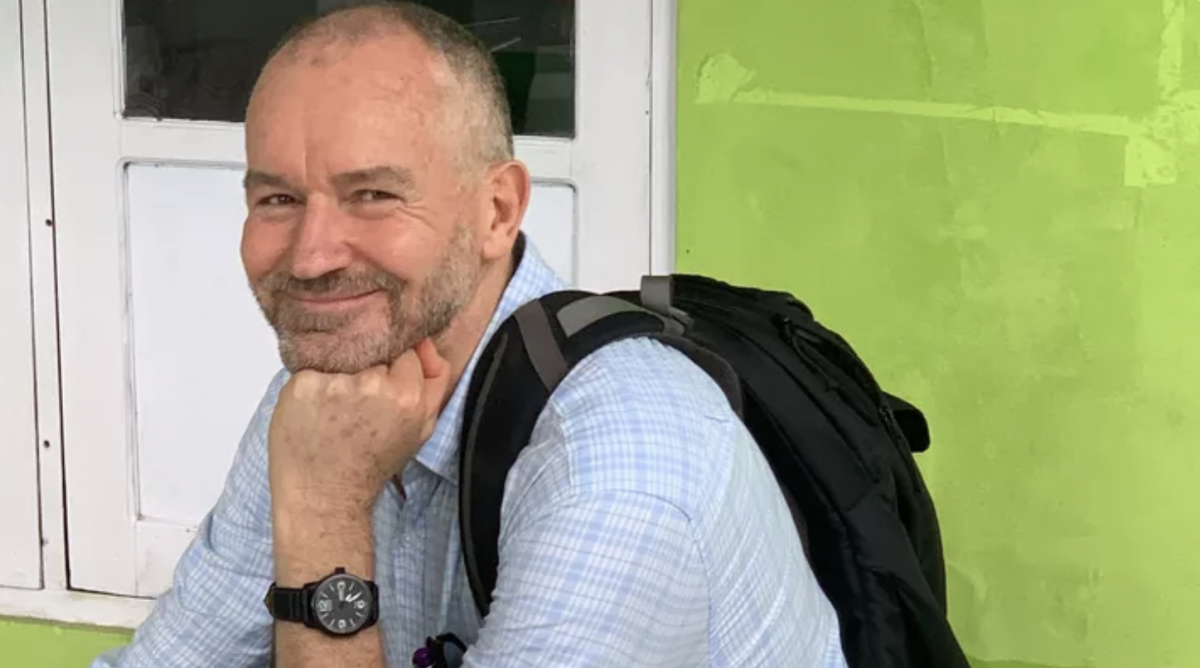
Dr Peter Scott has been honoured with an outpouring of love and grief from colleagues, patients and family and friends. Photo: Go Fund Me.
Canberra Health Services will do more to support staff members who experience trauma at work following the death of respected and beloved obstetrician Dr Peter Scott.
At a public memorial on Sunday (5 June), attendees were told Dr Scott died by suicide on Thursday, 26 May, after experiencing a difficult event at work at the Centenary Hospital for Women and Children.
Dr Scott’s wife, Ann Maree Parker, is also a midwife who worked with her husband.
She told the memorial both she and Dr Scott had felt isolated after a traumatic delivery and as though they had not received adequate support from the organisation.
Ms Parker urged the hospital to work towards better supporting staff.
Police are currently preparing a report on Dr Scott’s death for the ACT Coroner.
Dr Scott has been remembered by many as someone who made an enormous contribution to the Canberra Hospital and obstetric healthcare in developing countries.
He was an obstetrician and gynaecologist of 30 years and had spent the last 20 of them working in Canberra.
His colleagues, who were left devastated by his death, have described him as “one of the good ones”.
A GoFundMe set up by Dr Scott’s stepdaughter Elise Parker has already raised more than $100,000.
Those funds will go towards the Muder Ignacio Hospital in West Timor where Dr Scott and Ms Parker volunteered regularly.
It’s hoped an education wing at the hospital will be named in his honour.
The John James Foundation has agreed to match any donations received for the building of this facility.
Canberra Health Services CEO Dave Peffer said the loss of Dr Scott was being felt deeply across the health service.
“Everyone who worked closely with Peter is grieving. We are doing all that we can to provide them with the support they need at this difficult time,” he said.
“Even colleagues who had met Peter in passing remember his energy, his dedication to his patients and colleagues and his generosity of spirit.”
Mr Peffer said support would continue to be provided to staff and acknowledged more could be done, particularly to support people who experience traumatic events through their work.
“Sadly, by the very nature of our work, our doctors, nurses, allied health staff and support teams regularly care for people at their most vulnerable and are exposed to a range of potentially traumatic experiences,” he said.
“The fact that these scenarios occur often does not make them any easier for our team members to deal with.”
He said on-site and dedicated phone-based specialist trauma counselling and other support services, including emergency, crisis and 24-hour support services for all team members had been set up on Friday (27 May).
One staff member, speaking to Region Media on the condition of anonymity, said Dr Scott had experienced “difficult outcomes lately” as all midwives and obstetricians do.
“The support they are offering now needs to be 24/7 and 365 days of the year,” they said.
“We experience trauma every day and staff are devastated.”
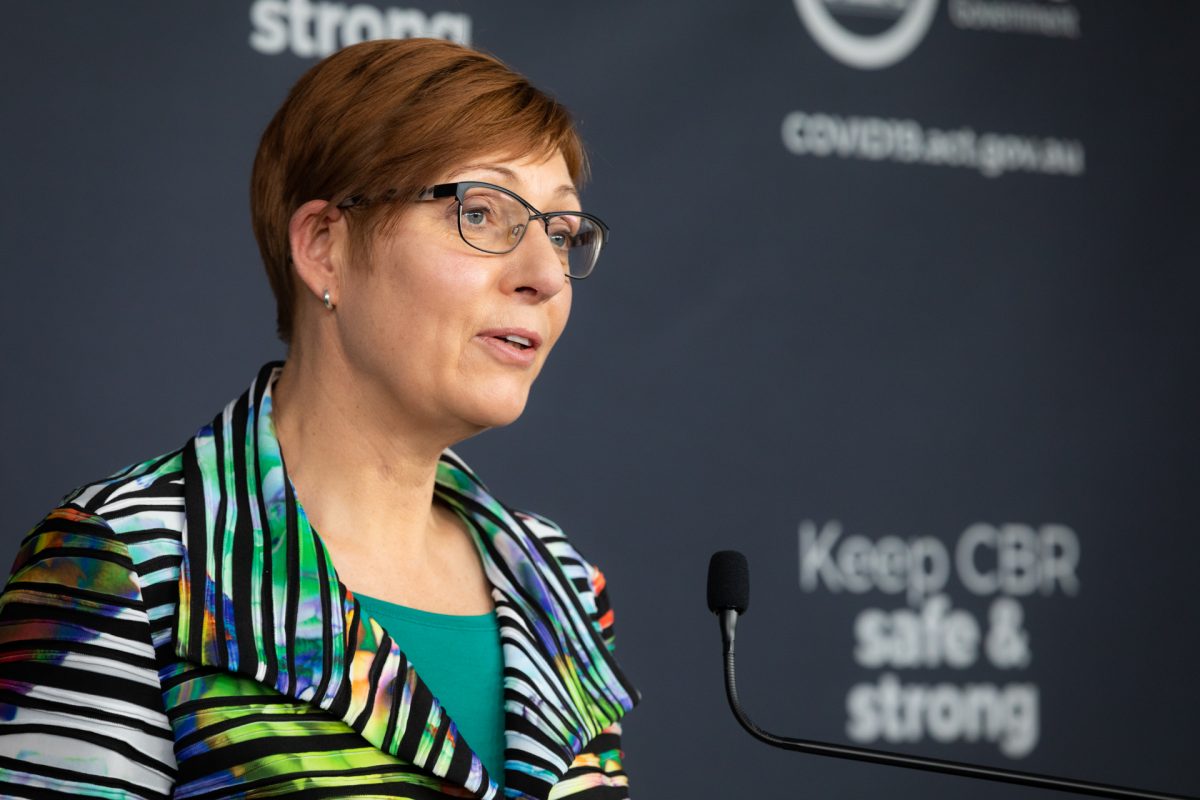
Minister for Health Rachel Stephen-Smith said Dr Scott’s loss would be deeply felt. Photo: Michelle Kroll.
Minister for Health Rachel Stephen-Smith was among many who attended the public memorial.
“He was incredibly well loved and well respected … and his loss will be deeply felt,” she said.
“CHS has indicated that they have had a lot of feedback from people over the last week about what more can be done to support staff.
“This is a traumatic thing for people in Canberra Health Services to experience and [CHS] leadership is committed to improving the way staff health and wellbeing is supported right across the organisation.”
If you or someone you know struggles with their mental health, you can call Lifeline’s 24-hour support line on 13 11 14.












